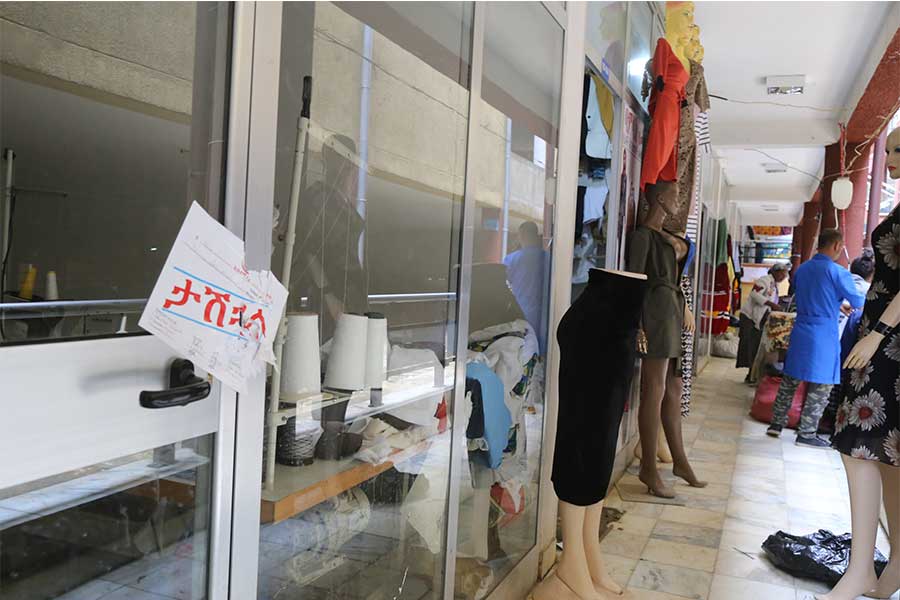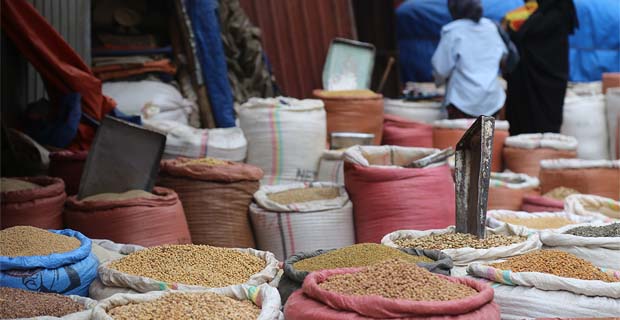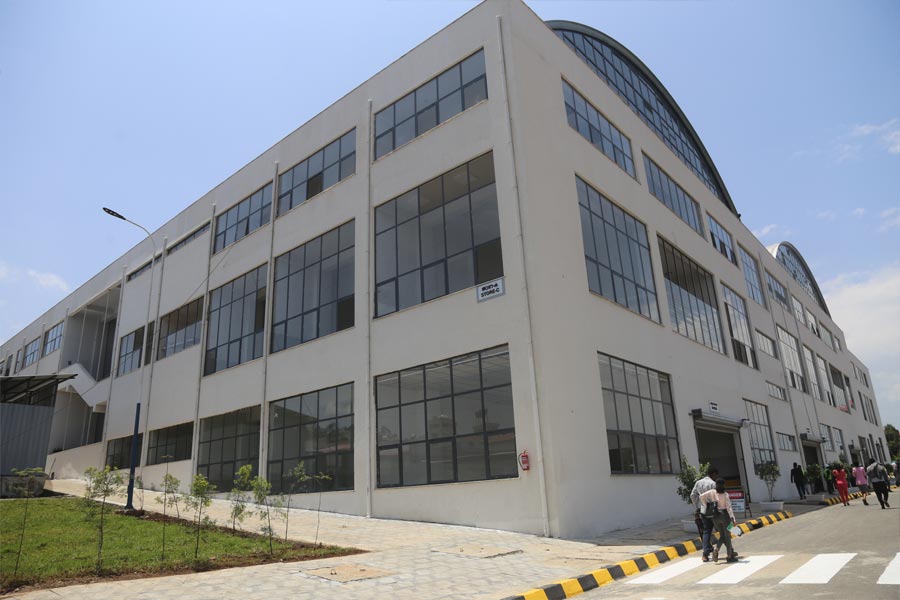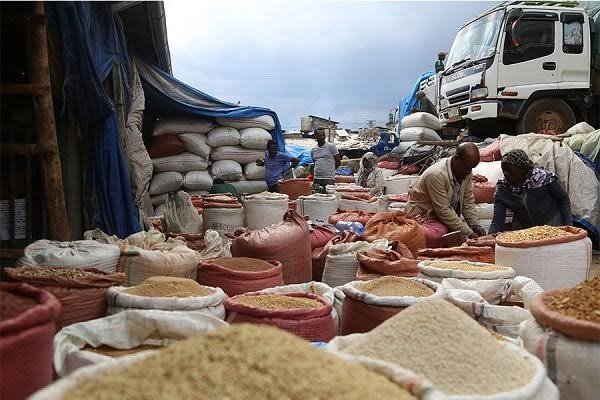
Featured | Sep 28,2019
Oct 3 , 2020
By FASIKA TADESSE ( FORTUNE STAFF WRITER )
 Headline Inflation, an indicator of the cost of living, declined for the third consecutive month reaching 11.5pc in October, according to the latest figures from the Central Statistical Agency (CSA).
Headline Inflation, an indicator of the cost of living, declined for the third consecutive month reaching 11.5pc in October, according to the latest figures from the Central Statistical Agency (CSA). Headline Inflation, an indicator of the cost of living, declined for the third consecutive month reaching 11.5pc in October, according to the latest figures from the Central Statistical Agency (CSA).
The rate shows a 0.5 percentage point fall from September. The report also indicates that last month marked 12.7 percent food inflation, declining by 0.8 percentage points from the previous month. Non-food inflation also showed a slight slide to 10pc, according to CSA.
Last month the prices of bread, cereals, dairy products, meat, eggs, vegetables and spices slightly decreased.
However, the price of consumer items increased by 11.4pc compared with the same month last year. The rate was pushed up by both price escalation of food and non-food items.
''The rise in headline inflation rate is due to the fact that the general consumer price index (CPI) in October was higher than the corresponding CPI observed last year in October,’’ reads the report from CSA.
In October, the prices of clothing, footwear, corrugated iron sheets and door sets, cement, charcoal, household goods, furnishings, transport, healthcare, food and drinks also increased.
The rate had gone down in August. Last month’s rate is also lower than the annual average of last fiscal year's figures that registered average headline inflation of 13pc.
It is also lower compared with the average rate of 16.23pc between 2006 and 2018, reaching an all-time high of 64.2pc in 2008 and a record low of -4.1pc in 2009. Though the government aspires to keep inflationary pressures in single digits, the rate jumped to double-digits last fiscal year, contrary to the preceding year when the inflation rate was less than eight percent on the average.
The government will place much effort in lowering the rate in the current fiscal year, according to former President Mulatu Teshome's (PhD) address to the representatives of both houses last month. In his speech to the joint session, he announced that controlling the inflationary pressure is one of the government’s focus areas in the current fiscal year in an attempt to stabilise the economy.
''We will have a tight monetary and fiscal policy,'' said Mulatu, who was recently replaced by Sahle-work Zewede, a long-serving diplomat who become the first female president in the country.
Still, the rate is high compared to neighboring Kenya, which has kept its inflationary pressure in single digits at 5.53pc. Kenya's rate has grown by two percentage points from the preceding month, according to tradingeconomics.com, a New York-based statistics and data provider.
PUBLISHED ON
Oct 03,2020 [ VOL
19 , NO
968]

Featured | Sep 28,2019

Fortune News | Apr 17,2021

Fortune News | Apr 13,2024

Fortune News | Jun 07,2020

Fortune News | Feb 24,2024


Editorial | Feb 10,2024

Viewpoints | Jul 30,2022

Commentaries | Feb 13,2021

In-Picture | Mar 02,2024

Dec 22 , 2024 . By TIZITA SHEWAFERAW
Charged with transforming colossal state-owned enterprises into modern and competitiv...

Aug 18 , 2024 . By AKSAH ITALO
Although predictable Yonas Zerihun's job in the ride-hailing service is not immune to...

Jul 28 , 2024 . By TIZITA SHEWAFERAW
Unhabitual, perhaps too many, Samuel Gebreyohannes, 38, used to occasionally enjoy a couple of beers at breakfast. However, he recently swit...

Jul 13 , 2024 . By AKSAH ITALO
Investors who rely on tractors, trucks, and field vehicles for commuting, transporting commodities, and f...

Oct 4 , 2025
Eyob Tekalegn (PhD) had been in the Governor's chair for only weeks when, on Septembe...

Sep 27 , 2025
Four years into an experiment with “shock therapy” in education, the national moo...

Sep 20 , 2025
Getachew Reda's return to the national stage was always going to stir attention. Once...

Sep 13 , 2025
At its launch in Nairobi two years ago, the Africa Climate Summit was billed as the f...